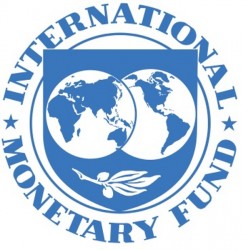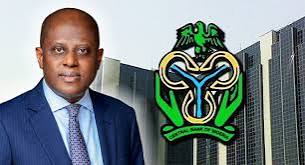Nigeria Exited Recession, But Economy Remains Vulnerable – IMF

An International Monetary Fund (IMF) staff team led by Amine Mati visited Nigeria during December 6-20, 2017 to conduct the 2018 Article IV consultation has admitted that though the country has exited recession, the economy still remains vulnerable.
Following the conclusion of the visit, Mr. Mati, Senior Resident Representative and Mission Chief for Nigeria at the IMF, issued the following statement:
“Overall growth is slowly picking up but recovery remains challenging. Economic activity expanded by 1.4 percent year-on-year in the third quarter of 2017—the second consecutive quarter of positive growth after five quarters of recession—driven by recovering oil production and agriculture. However, growth in the non-oil-non-agricultural sector (representing about 65 percent of the economy), contracted in the first three quarters of 2017 relative to the same period last year. Difficulties in accessing financing and high inflation continued to weigh on companies’ performance and consumer demand. Headline inflation declined to 15.9 percent by end-November, from 18½ percent at end-2016, but remains sticky despite tight liquidity conditions.
“High fiscal deficits—driven by weak revenue mobilization—generated large financing needs, which, when combined with tight monetary policy necessary to reduce inflationary pressures, increased pressure on bond yields and crowded out private sector credit. These factors contributed to raising the ratio of interest payments to federal government revenue to unsustainable levels. Reflecting the low growth environment and exposure to the oil and gas sector, the banking industry’s solvency ratios have declined from almost 15 to 10½ percent between December 2016 and October 2017, and non-performing loans have increased from 5 percent in June 2015 to 15 percent as of October 2017, although with provisioning coverage of about 82 percent.
“The authorities have begun addressing macroeconomic imbalances and structural impediments through the implementation of policies underpinning the Economic Recovery and Growth Plan (ERGP). Supported by recovering oil prices, the new Investor and Exporter foreign exchange window has increased investor confidence and provided impetus to portfolio inflows, which have helped to increase external buffers to a four-year high, and contributed to reducing the parallel market premium. Important actions under the Power Sector Recovery Program increased power supply generation and ensured government agencies pay their electricity bills. Welcome steps were also taken to improve the business environment and to address longstanding corruption issues, including through the adoption of the National Anti-Corruption Strategy in August 2017.
“However, in the absence of new policies, the near-term outlook remains challenging. Growth is expected to continue to pick up in 2018 to 2.1 percent, helped by the full year impact of greater availability of foreign exchange and higher oil production, but to stay relatively flat in the medium term. Risks to the outlook include lower oil prices, tighter external market conditions, heightened security issues, and delayed policy responses.
“Containing vulnerabilities and achieving growth rates that can make a significant dent in reducing poverty and unemployment requires a comprehensive set of policy measures.”
“On the fiscal front, the mission welcomes the recent tax reforms aimed at improving tax administration, planned increases in excises, and latest steps taken to lower debt servicing costs and lengthen maturities. However, with oil prices expected to remain lower than in the past, upfront actions to mobilize non-oil revenues, including through reforming the VAT and removing exemptions, are needed while safeguarding priority expenditures, including scaling up social safety nets and infrastructure investment.”
“Fiscal consolidation should be accompanied by a monetary policy stance that remains tight to further reduce inflation and anchor inflation expectations. Moving toward a unified and market-based exchange rate as soon as possible while continuing to strengthen external buffers would be necessary to increase confidence and reduce potential risks from capital flow reversals.”
“Such a policy package—along with structural reform implementation, including by building on recent successes to improve the business environment, closing infrastructure gaps, and implementing the power sector reform plan——would lay the foundation for a diversified private-sector led economy. Strengthening governance and transparency initiatives, and lowering gender inequality and fostering financial inclusion would also be important.”
The team held productive discussions with senior government and central bank officials. It also met with members of parliament, representatives of the banking system, private sector, civil society, and international development partners. The team thanks the authorities and those with whom it met for the open and productive discussions, excellent cooperation, and warm hospitality.
















